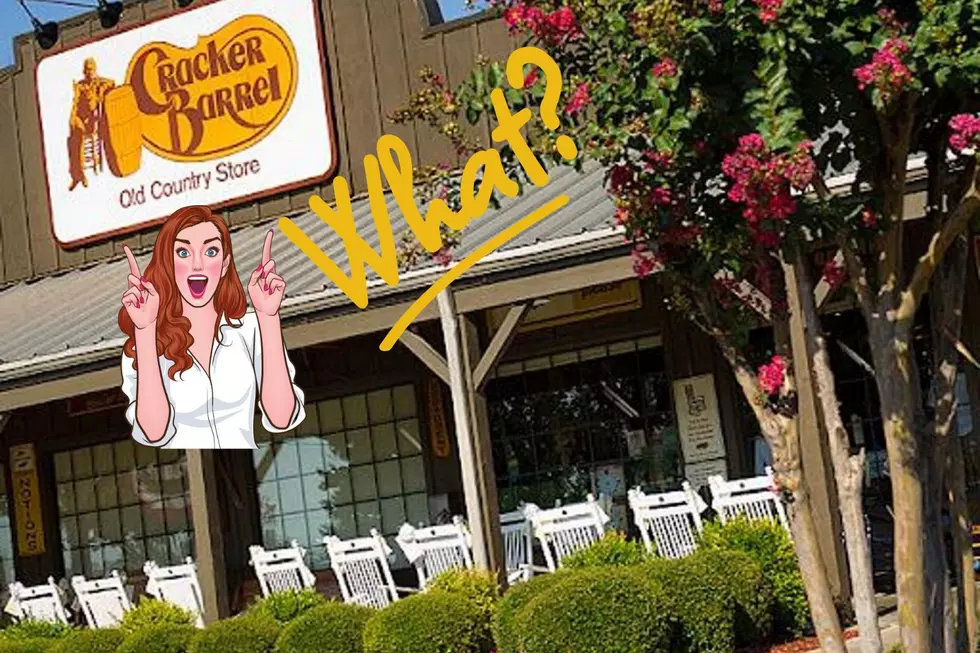Prison&Jail Life: An exclusive interview inside the Monmouth County Correctional Institution
If you've never been incarcerated, then you likely don't know, but if you have been, then you know all too well what happens inside a jail or a prison. We explore that on Day One of an Exclusive WOBM News series inside the Monmouth County Correctional Institution (a jail) in Freehold.
This series will explore what the prison/jail experience is really like and if the system works in rehabilitating someone to become a more positive and productive member of society.
Over the next five days you'll find out what prison life is like on a day-to-day basis, an inmate's battle with addiction, the rehab services offered in the correctional institute, how bail reform has created a revolving door for drug offenders and if the system works in giving someone the help they need.
We begin our story with Joe Arroyo, 39, who was born and raised in Long Branch, received his education through the Long Branch School System and then later on moved to Neptune as an adult.
He has been in and out of jail cells since a couple stints at the state prison in the late 1990's and early 2000's as a teenage high school dropout due to his ongoing battle with cocaine addiction, which came as a surprise to his family and friends who didn't realize he was living a double life.
Joe portrayed one image of a young kid who played sports and did well in school to his parents but when he was away from people who really cared about him, he gave into temptation to do cocaine by the crowds he surrounded himself with.
When he was arrested, in court and in jail it came as a surprise to those who care for him.
"I kind of kept it all a secret, that whole life was one me and then I had a second life that was another me, but they (my family) were all worried and just upset with the whole situation," Arroyo said.
His first time in prison was very scary for him.
"When you first come in, you're 18-19 years old, you don't know what's going on...you're scared and all that and crying and you want to get out, you ask yourself, how did I get myself into this," Arroyo said. "Over time it gets easier, I've been in and out so I started to get to know the guards and they start calling you by your first name. Over time it gets easier, which is not good, it's definitely not a good thing but it's very hard when you're young and coming in here."
Time or the days spent in a prison or jail cell is not as glamorous or as action packed as you see sometimes on TV or in the movies.
The real prison life is really nothing like what gets put into Hollywood scripts, as Arroyo describes, and while hoping for the time to pass quickly until you're released, it has the opposite affect.
"Everyday is like a month in here, it goes by slow, it is the slowest thing ever, there's really no days that go by quick," Arroyo said.
Arroyo says being in prison or jail is a lot scarier than what you think it is or is portrayed on the big screen.
"Nobody wants to go through this, there's nothing funny about it," Arroyo said. "It is scary, obviously, you only have one guard at times watching 60-70 guys."
To help pass the time and keep occupied Arroyo will partake in a number of activities or chores on a daily basis like doing the laundry or playing basketball.
"I get up and do my job because everybody wants their clothes washed, they want to have clean clothes," Arroyo said. "I read my book and watch a little TV but not too much because I don't want to dwell on what's going on outside, but focus more on me at this moment."
There are approximately 600 inmates currently in the Monmouth County Correctional institution, but not all of them are together in the same cell block, so how are they classified and separated?
A number of factors go into it, including why they are in there.
"They go through a series of screenings about their background and to see if they have any additional warrants. Are they in here for a murder and awaiting a trial or are they in here for an unpaid traffic summons that brought them a warrant and they have to serve some time and pay a fine? It's wide ranging here," Monmouth County Sheriff Shaun Golden said.
Golden says classification is important for the safety and security of both the guards and the inmates who are also placed into certain areas based on any medical or psychological issues they have.
While there may be similar classification systems or programs at every facility in New Jersey, there are differences based on the type of facility is there.
A jail, which is what the MCCI is classified as, houses short term inmates, and as you'll learn more about this week offers rehab programs like at the Monmouth County Correctional Institution to correct the behavior and send people back into the real world with options for help so they can stay on the right track.
However, there are occasions where after sentencing for certain types of crime a inmate will spend limited incarceration time at a facility like the MCCI while awaiting trial or an impending transfer to state prison depending on the crime.
Prisons are generally where you're incarcerated for a longer stay, typically after conviction for a more serious crime.
Inside the MCCI, there is some co-mingling the inmates allowed including when several of them may participate in various activities but for the most part, they stay in their cells.
Depending on what someone is in there for could also depend on whether or not they have any restrictions to do anything outside the cell or how much they are allowed to partake in an activity.
"Some need to be under constant watch, some need to be under medical watch and so we end up bringing those inmates to different locations within this large facility," Golden said.
Inmates are placed into different cell blocks based on a classification system that checks things like their background and what they're charged with.
The system hasn't prevented incidents from taking place at this institution but nothing specific has been noted for this story.
"Just because you're in a correctional institution that generally houses short-term inmates, it doesn't mean there's not gang activity," Golden said. "Gangs are prevalent in any institution that you go to and they're certainly here."
Golden says there have also been incidents between inmates and the guards.
"It's a dangerous place, we've had officers that have been attacked here and at other jails and prisons and it's about how we respond to that," Golden said. "We continue to charge anything that's done in this facility. You could damage a table and we will charge you and extend your sentence with criminal mischief."
Disciplinary measures vary on a case by case basis and may include being transferred out of the facility.
"Charges will be brought against you, even though you're sitting here in jail awaiting something else, we'll bring them down upon you," Golden said.
*In Part Two of our series tomorrow, Joe Arroyo discusses his more than 20-year battle with cocaine addiction that keeps sending him back to prison.
More From 92.7 WOBM









